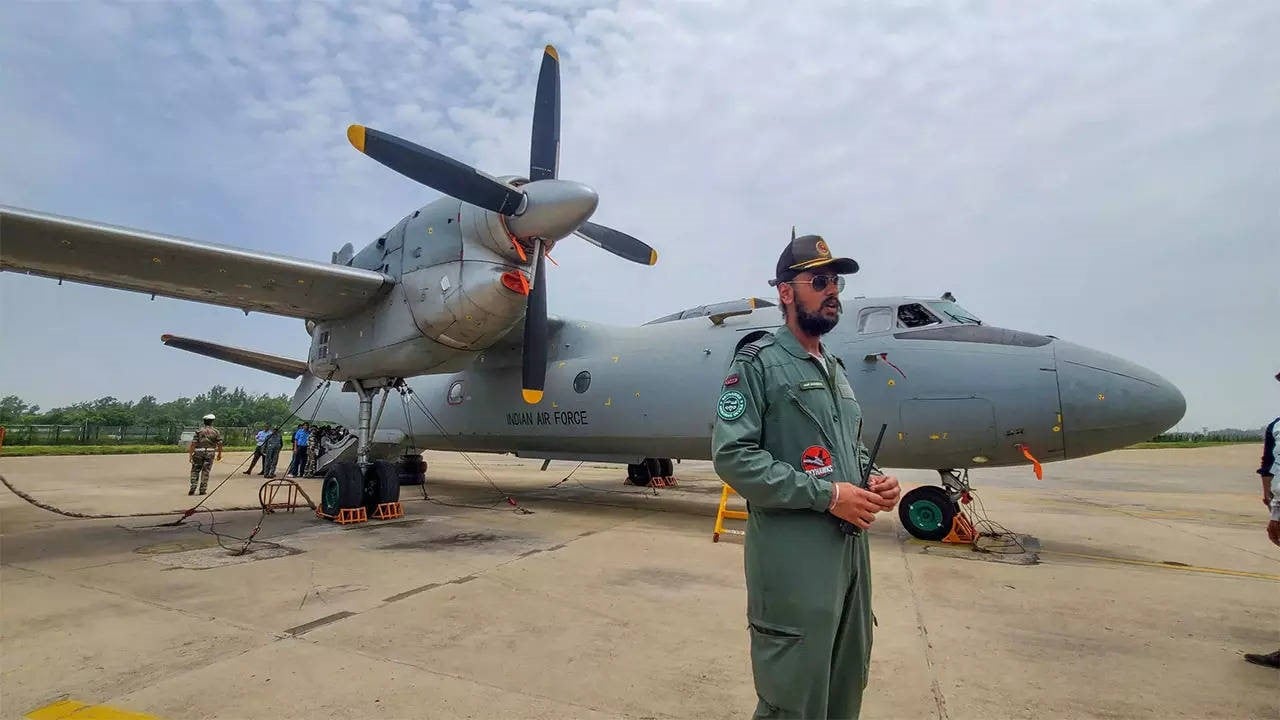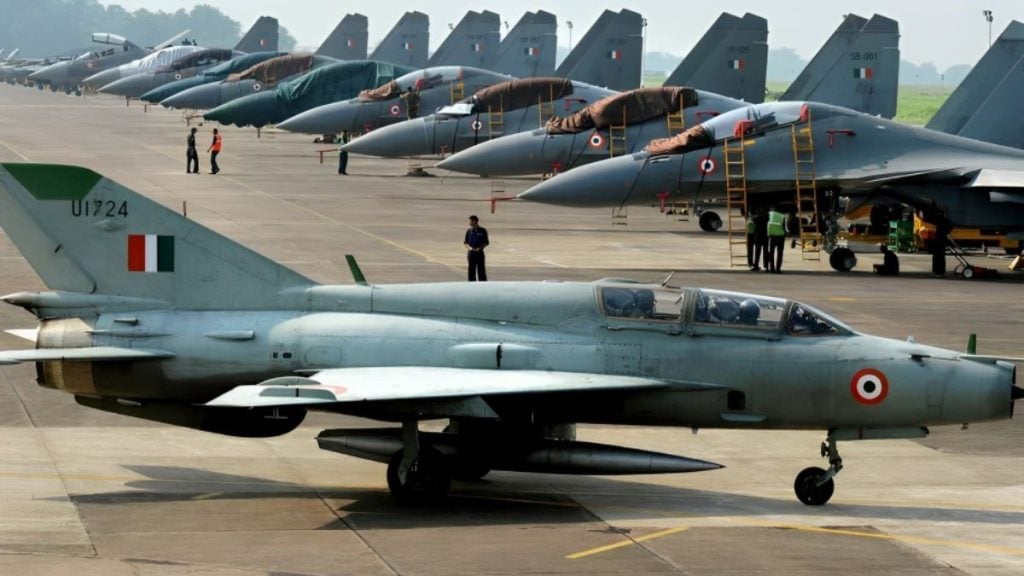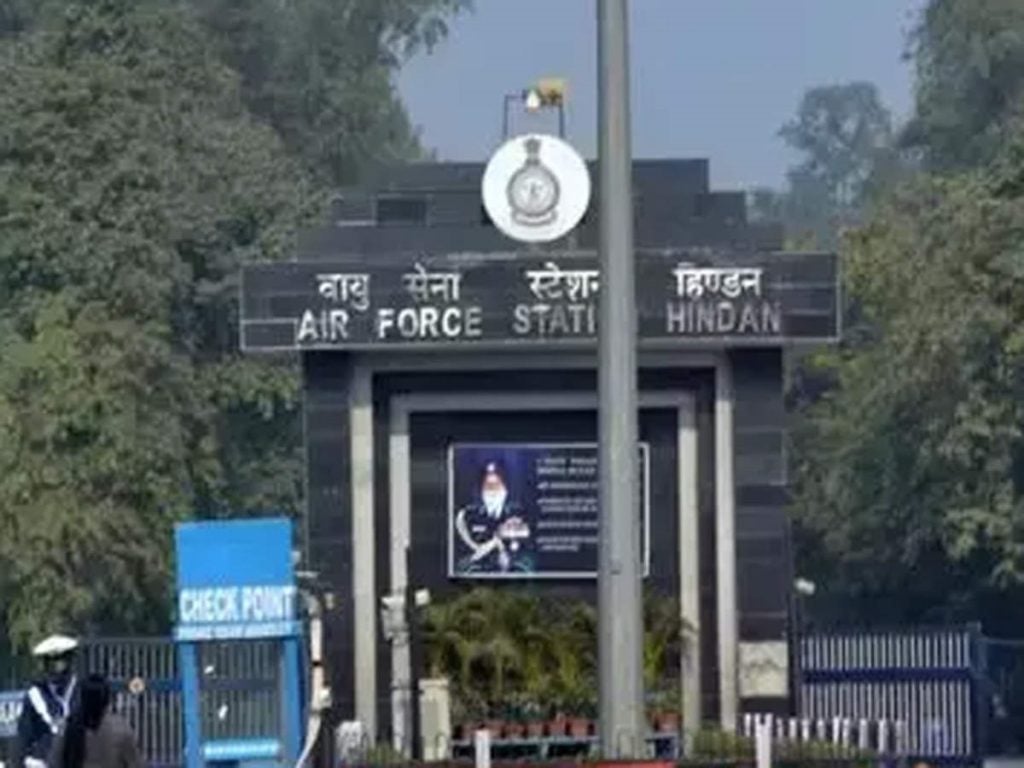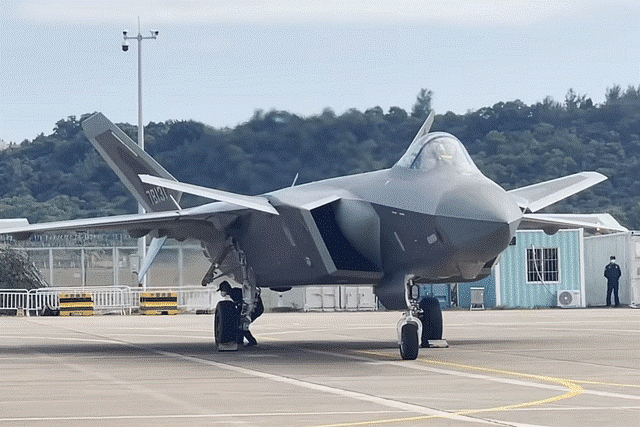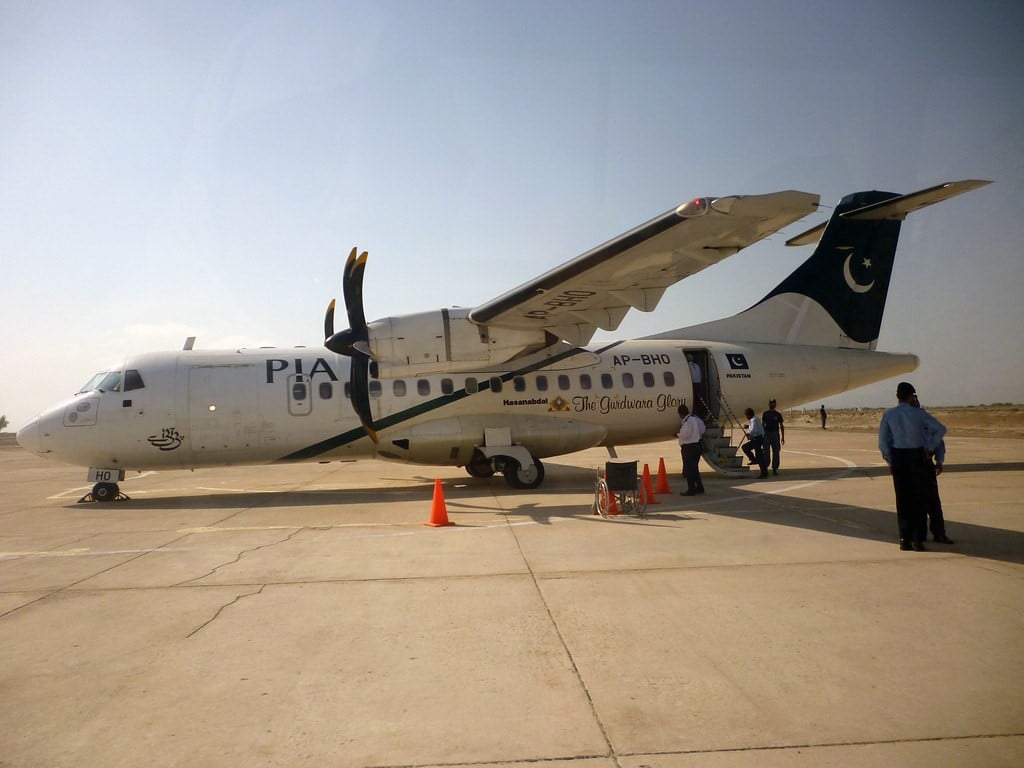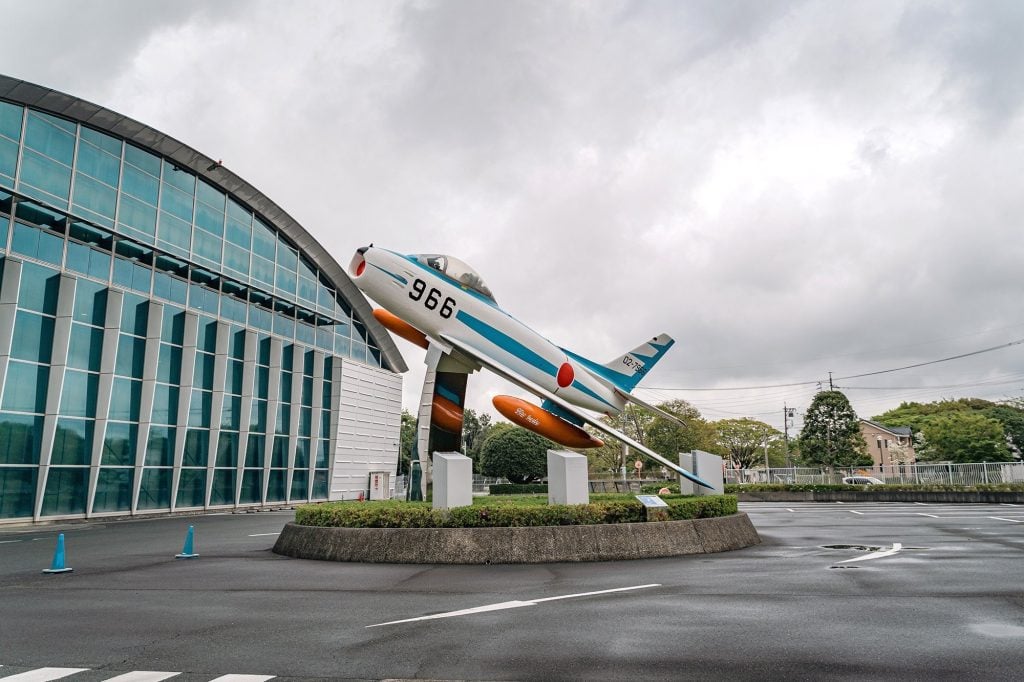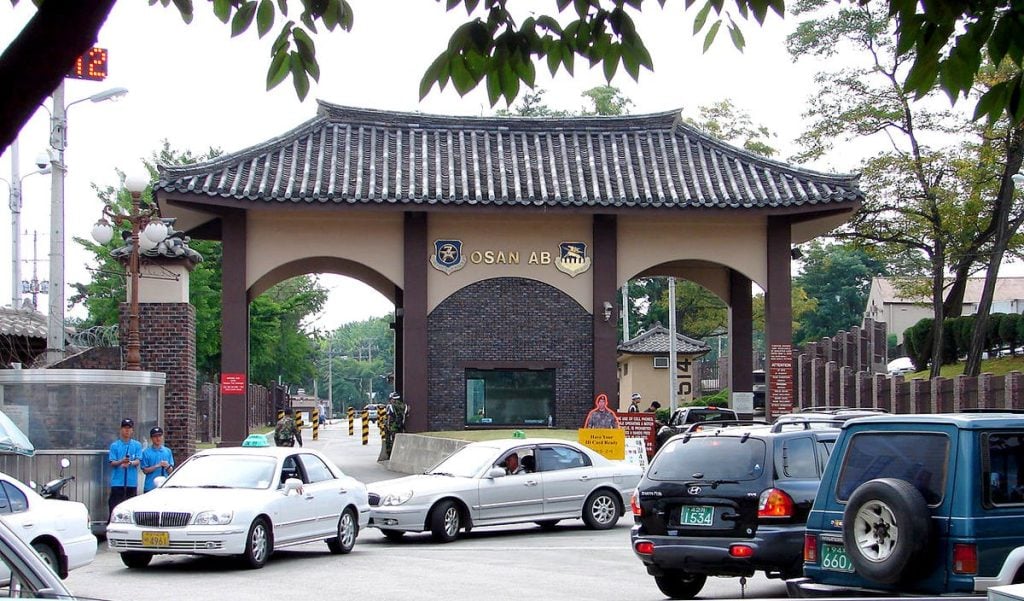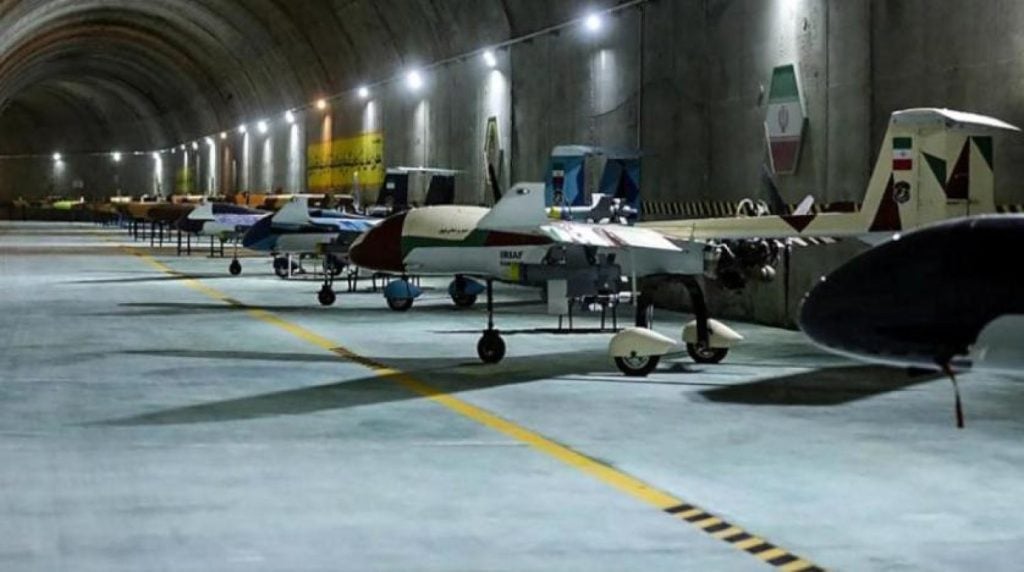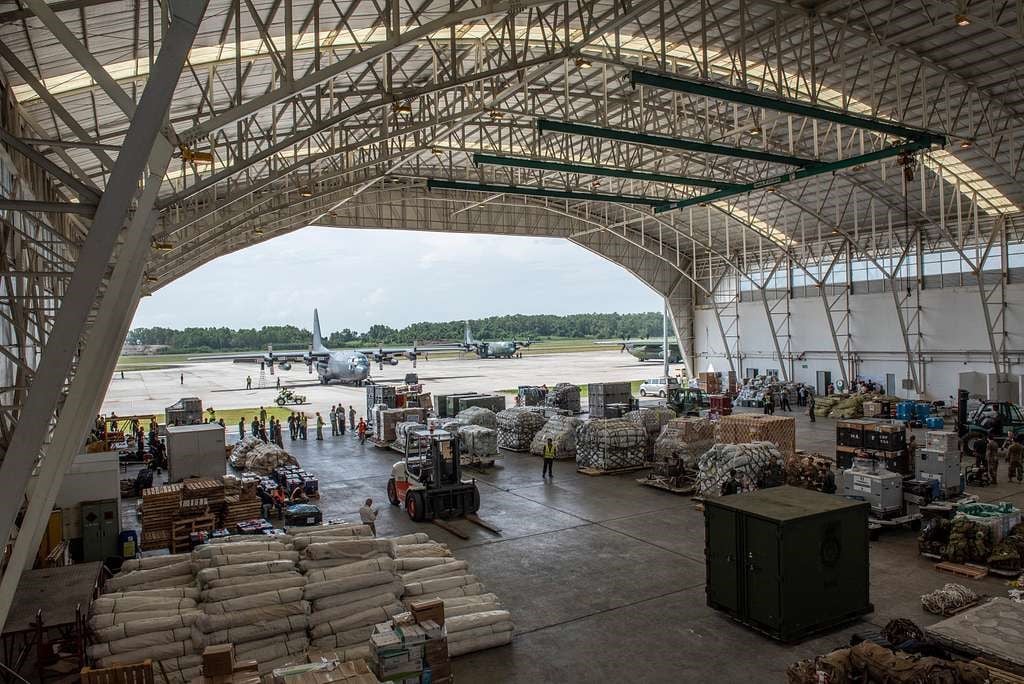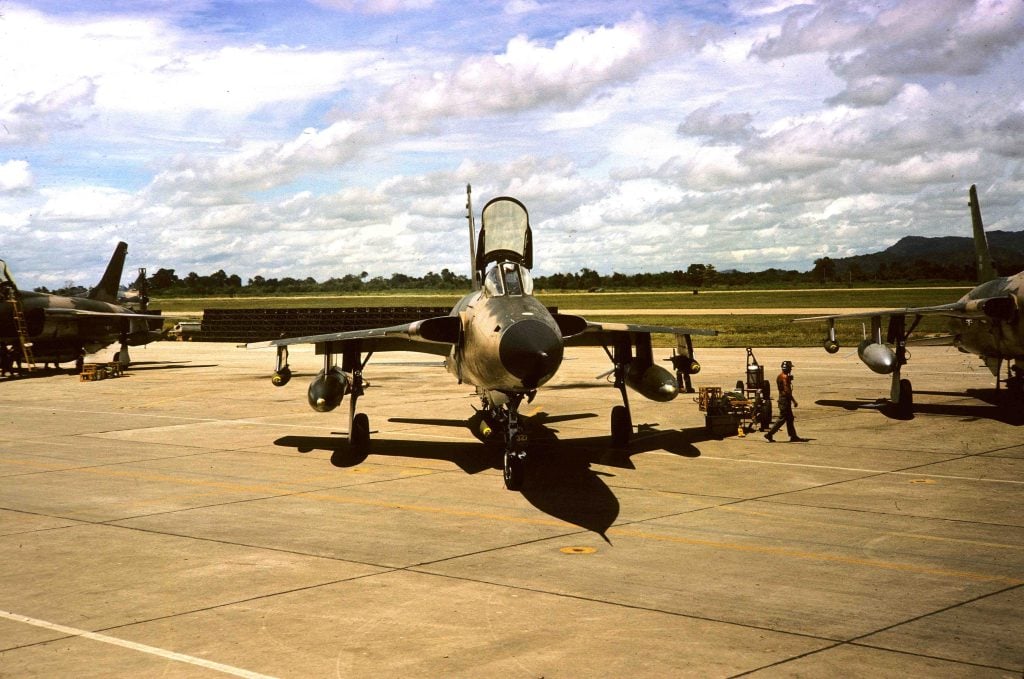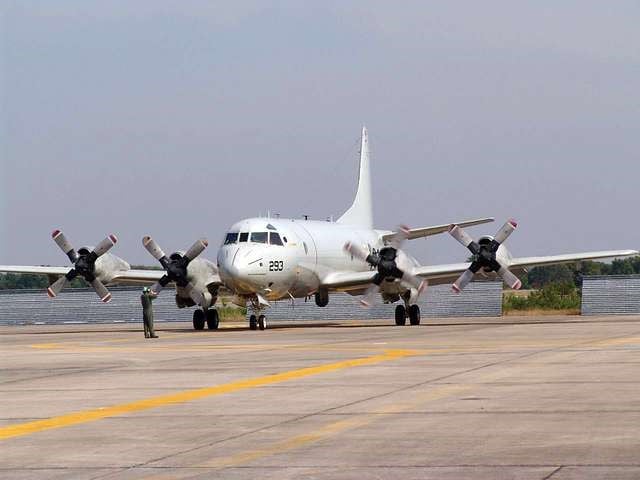The vast and diverse Asian continent is home to an array of strategic military assets, with its air force stations playing a pivotal role in regional and global defense strategies. These hubs of aerial operations serve as critical nodes, shaping the balance of power and regional dynamics. As we embark on a new era, it is essential to explore the 10 Biggest Air Force Stations in Asia 2026 and understand their significance in the evolving geopolitical landscape.
Patriot Missile is the Best Air Defense System in the World
1. Hindan Air Force Station
Nestled near the Hindan River in the Indian state of Uttar Pradesh, the Hindan Air Force Station stands as the undisputed colossus among Asia’s air force stations. Spanning an expansive 55 square kilometers, this mammoth facility is a testament to India’s air defense prowess. Established in 1932 and operated under the Western Air Command, Hindan has evolved into a formidable hub for the Indian Air Force, hosting a fleet of Sukhoi Su-30MKI and MiG-29 fighter jets that safeguard the nation’s northern borders.
Hindan’s Strategic Significance
Hindan’s strategic significance extends beyond its sheer size. As the largest air force station in Asia, it serves as a crucial command and control center, coordinating aerial operations and defense maneuvers across the region. Its vast expanse and robust infrastructure allow for the seamless deployment and maintenance of a diverse array of military aircraft, ensuring the Indian Air Force’s readiness to respond to any contingency.
Hindan’s Historical Legacy
The Hindan Air Force Station’s history is deeply intertwined with the evolution of the Indian Air Force. Established in 1932 as the Royal Indian Air Force, the service has played a pivotal role in various military operations, including its crucial involvement during the Second World War in 1945. Today, the station’s annual Air Force Day celebrations on October 8th serve as a testament to its enduring legacy and the unwavering spirit of the Indian military.
2. Duyun Air Base
Nestled amidst the rugged landscapes of China’s Guizhou province, the Duyun Air Base stands as the second-largest air force station in Asia. Serving as a strategic staging ground for the People’s Liberation Army Air Force (PLAAF), Duyun boasts extensive runways and hardened shelters, capable of accommodating a diverse array of aircraft, including the formidable J-20 stealth fighter.
Duyun’s Technological Prowess
Duyun’s significance extends beyond its sheer size, as it has emerged as a hub for China’s cutting-edge military aviation technology. The presence of the J-20 stealth fighter, a testament to the nation’s advancements in aerospace engineering, underscores Duyun’s role in bolstering China’s regional air superiority.
Duyun’s Geopolitical Importance
The Duyun Air Base’s strategic location in the heart of Guizhou province, a region known for its rugged terrain and military significance, further enhances its value in China’s broader defense strategy. As the PLAAF continues to modernize and expand its capabilities, Duyun’s role as a crucial staging ground for air operations is likely to grow in the years to come.
3. Gwadar Air Base
Situated along the Arabian Sea coast, the Gwadar Air Base in Pakistan ranks as the third-largest air force station in Asia. This strategic outpost serves as a pivotal asset for the Pakistani military, with its location near the Gwadar deep-sea port and potential involvement in the China-Pakistan Economic Corridor (CPEC) underscoring its significance in both military and economic endeavors.
Gwadar’s Dual-Purpose Role
The Gwadar Air Base’s strategic positioning allows it to fulfill a dual-purpose role, catering to both military and economic objectives. Its proximity to the Gwadar port, a key node in the CPEC, positions the air base as a critical component in Pakistan’s efforts to enhance regional connectivity and economic development.
Gwadar’s Maritime Dominance
Beyond its economic implications, the Gwadar Air Base also plays a crucial role in Pakistan’s maritime defense strategy. Its location along the Arabian Sea coast grants the station a unique vantage point, enabling it to monitor and respond to maritime threats, reinforcing Pakistan’s control over its coastal regions.
4. Hamamatsu Air Base
Situated in the heart of Japan, the Hamamatsu Air Base stands as a pivotal hub for the Japan Air Self-Defense Force (JASDF). Home to a fleet of F-15J fighter jets and E-7A Wedgetail airborne early warning and control aircraft, this air force station serves as a vital component in Japan’s comprehensive defense strategy.
Hamamatsu’s Technological Prowess
The Hamamatsu Air Base’s technological capabilities are a testament to Japan’s commitment to maintaining a robust and technologically advanced air force. The presence of the F-15J, a highly capable air superiority fighter, and the E-7A Wedgetail, a state-of-the-art airborne early warning and control system, underscores the station’s role in enhancing Japan’s aerial dominance.
Hamamatsu’s Regional Significance
As a key JASDF facility, the Hamamatsu Air Base plays a crucial role in maintaining regional stability and safeguarding Japan’s airspace. Its strategic location and the advanced capabilities of its aircraft enable the station to monitor and respond to potential threats, contributing to the broader defense architecture of the Asia-Pacific region.
10 Surprising Facts You Didn’t Know About the British Armed Forces
5. Osan Air Base
Nestled in South Korea, the Osan Air Base stands as a vital hub for the enduring US-South Korea military alliance. Serving as a critical staging ground for US forces, the base hosts a fleet of F-16 Fighting Falcons and other advanced aircraft, solidifying its role in the regional security landscape.
Osan’s Geopolitical Significance
The Osan Air Base’s significance extends beyond its military capabilities, as it represents the deep-rooted partnership between the United States and South Korea. This strategic alliance, forged in the aftermath of the Korean War, has been a cornerstone of regional stability, and the Osan Air Base serves as a tangible manifestation of this enduring commitment.
Osan’s Operational Readiness
The Osan Air Base’s operational readiness is a testament to the joint efforts of the US and South Korean militaries. The base’s extensive infrastructure, including hardened aircraft shelters and advanced logistics capabilities, ensures the seamless integration of air power in response to any regional contingencies, reinforcing the allies’ deterrence capabilities.
6. Khanboundran Air Base
Situated in the western deserts of Iran, the Khanboundran Air Base stands as a major training facility for the Islamic Republic of Iran Air Force (IRIAF). This strategic outpost houses a formidable fleet of F-14 Tomcat and MiG-29 fighter jets, underscoring Iran’s commitment to maintaining a robust air defense capability.
Khanboundran’s Training Significance
The Khanboundran Air Base’s primary role is to serve as a premier training ground for IRIAF pilots and personnel. The base’s expansive airspace and advanced facilities enable the Iranian Air Force to hone the skills of its aircrews, ensuring the readiness and proficiency of its aerial assets.
Khanboundran’s Geopolitical Implications
The Khanboundran Air Base’s strategic location in Iran’s western deserts grants it a unique vantage point, allowing the IRIAF to monitor and respond to potential threats emanating from the region. This positioning, coupled with the base’s impressive arsenal of fighter jets, reinforces Iran’s regional influence and its ability to project air power across the Middle East.
7. Balikpapan Air Force Base
Nestled in the heart of Indonesia, the Balikpapan Air Force Base serves as a strategic outpost for the Indonesian Air Force. This facility houses a diverse fleet of aircraft, including Sukhoi Su-30MK and F-16 fighter jets, underscoring Indonesia’s commitment to safeguarding its vast maritime domain.
Balikpapan’s Maritime Focus
The Balikpapan Air Force Base’s strategic location, situated along the Indonesian archipelago, grants it a unique role in the nation’s maritime defense strategy. The base’s aircraft and personnel are tasked with monitoring and responding to threats across the country’s expansive maritime territories, contributing to Indonesia’s overall security and sovereignty.
Balikpapan’s Regional Significance
As a key Indonesian Air Force facility, the Balikpapan Air Force Base plays a crucial role in the broader regional security landscape. Its ability to project air power across the Indonesian archipelago and the surrounding waters reinforces the country’s position as a regional powerhouse, with the base serving as a vital component in Indonesia’s efforts to maintain stability and influence in the Asia-Pacific region.
8. Korat Royal Thai Air Force Base
Nestled in the heart of central Thailand, the Korat Royal Thai Air Force Base stands as the largest air force facility in the kingdom. This strategic hub is home to a fleet of F-16 Fighting Falcons and JAS-39 Gripen fighter jets, underscoring Thailand’s commitment to maintaining a robust air defense capability.
Korat’s Operational Significance
The Korat Royal Thai Air Force Base’s extensive infrastructure and diverse aircraft fleet enable it to serve as a crucial command and control center for the Royal Thai Air Force. From this strategic location, the base coordinates air operations and defense maneuvers, ensuring the Thai military’s readiness to respond to any regional contingencies.
Korat’s Regional Influence
As the largest air force base in Thailand, the Korat Royal Thai Air Force Base holds significant regional influence. Its ability to project air power across the Southeast Asian landscape reinforces Thailand’s position as a key player in the region’s security architecture, contributing to the overall stability and balance of power in the Asia-Pacific.
9. Novosibirsk Tolmachevo Airport
Nestled in the heart of Siberia, the Novosibirsk Tolmachevo Airport serves a dual purpose, functioning as both a civilian international airport and a Russian Air Force base. This strategic facility is home to a fleet of Tu-22M3 Backfire bombers and Su-34 Fullback fighter-bombers, underscoring Russia’s commitment to maintaining a robust aerial presence in the region.
Novosibirsk’s Versatility
The Novosibirsk Tolmachevo Airport’s ability to accommodate both civilian and military aviation operations highlights its versatility and strategic value. This dual-purpose nature allows the Russian Air Force to seamlessly integrate its aerial assets into the broader transportation and logistics network, enhancing the overall effectiveness of its operations.
Novosibirsk’s Geopolitical Significance
The Novosibirsk Tolmachevo Airport’s location in Siberia, a region of immense geopolitical importance for Russia, further underscores its strategic significance. As a hub for both civilian and military aviation, the facility serves as a critical node in Russia’s efforts to project power and maintain influence across the vast Eurasian landmass.
10. Utapao Royal Thai Navy Air Station
Situated in the heart of Thailand, the Utapao Royal Thai Navy Air Station holds a unique dual-purpose role, functioning as both a civilian international airport and a Russian Air Force base. This strategic facility is home to a fleet of Tu-22M3 Backfire bombers and Su-34 Fullback fighter-bombers, reflecting Russia’s commitment to maintaining a robust aerial presence in the region.
Utapao’s Versatility
The Utapao Royal Thai Navy Air Station’s ability to accommodate both civilian and military aviation operations highlights its versatility and strategic value. This dual-purpose nature allows the Russian Air Force to seamlessly integrate its aerial assets into the broader transportation and logistics network, enhancing the overall effectiveness of its operations.
Utapao’s Geopolitical Significance
The Utapao Royal Thai Navy Air Station’s location in Thailand, a key strategic partner for Russia in the region, further underscores its geopolitical significance. As a hub for both civilian and military aviation, the facility serves as a critical node in Russia’s efforts to project power and maintain influence across the Asia-Pacific landscape.
From Service to Sports 5 Athletes Who Served in the Air Force
Conclusion
The Asian continent’s air force stations stand as formidable bastions, shaping the balance of power and regional dynamics. From the colossal Hindan Air Force Station in India to the cutting-edge Duyun Air Base in China, these aerial hubs reflect the military prowess and technological advancements of their respective nations. As the global geopolitical landscape continues to evolve, the role of these strategic air force stations will only grow in importance, serving as key components in the defense and security strategies of Asia’s leading powers.
FAQs
1. Which is the largest air force base in Asia?
Air Force Station Hindon (Hindon AFS), commonly known as Hindon, is a major Indian Air Force base under the Western Air Command (WAC). It is the largest airbase in Asia, covering an area of approximately 14 km in circumference and 10.25 square kilometers (3.96 square miles). The base observes Air Force Day on October 8th.
2. Is India 4th largest air force?
India continues to have the fourth largest air force globally.
3. How to join IAF?
Candidates applying for positions other than NDA and CDSE across all branches must take the AFCAT, which is held twice a year, in February and August. Announcements for AFCAT applications are made in June and December, so candidates should apply according to these advertisements.
4. Who has the largest army in Asia?
China
5. Which country has the most air force stations in the top 10 list?
China and Thailand each have two air force stations in the top 10 list, showcasing their significant aerial capabilities in the region.
